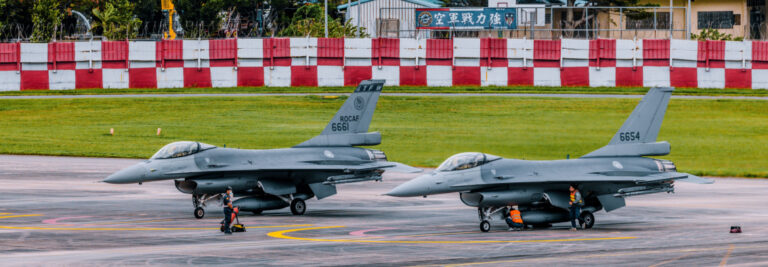The landslide victory of the Democratic Progressive Party (DPP) and its leader Tsai Ing-wen in the January 2016 election held forth the promise of improvements in Taiwan-Japan relations. During the eight-year administration of the Nationalist Party (KMT)’s Ma Ying-jeou, relations had regressed, as Ma sought to improve the nation’s frayed relationship with the People’s Republic of China (PRC) by integrating Taiwan’s economy more closely with China’s and encouraging closer social and political ties. At the same time, for unrelated reasons, China’s relations with Japan had deteriorated.
Official Japanese reactions to the election may be characterized as cordial, correct, and carefully calibrated to avoid offending China. Foreign Minister Kishida Fumio congratulated Tsai and her party on their victory, describing Taiwan as an “important partner and precious friend of Japan” with whom it shared basic values. In a nod to Beijing’s sensitivities, Kishida added that relations would be maintained “on a non-government basis.”
As a candidate, Tsai had visited Japan and since she happened to visit a major Tokyo hotel at the same time as Prime Minister Abe Shinzō, the media speculated that the two had met, though neither side would confirm. Once inaugurated, Tsai chose the highly qualified former premier Frank Hsieh (謝長廷) as Taiwan’s de facto ambassador to Tokyo. A former presidential candidate, Hsieh had studied at the prestigious Kyoto University, is fluent in Japanese, and has many influential contacts in the country. Another senior DPP member, Chiu Yi-ren (邱義仁), who heads the Taipei-based entity, Association of East Asian Relations (亞東關係協會), is in charge of conducting relations between the two nations.
Warm feelings and shared values notwithstanding, there were serious substantive issues to be dealt with, several of them seemingly contrived by the outgoing administration to cause problems for its successor. Chief among these were maritime territorial disputes, comfort women, and food imports.
With regard to maritime disputes, in the waning days of the KMT administration, the Ma administration had given much publicity to the Japanese coast guard’s expulsion of Taiwanese fishing boats from what the latter claims is the exclusive economic zone (EEZ) around its island of Okinotori. Both China and Taiwan reject the claim that Okinotori is an island, meaning that they do not believe it has an EEZ, and hence that their fishing fleets have every right to ply their trade there. Within days of assuming office, Tsai declared that the resolution of the dispute should be left to the United Nations Commission on the Limits of the Continental Shelf. Since Taiwan is not a member of the United Nations, and since no other country is likely to raise the issue—China having already rejected the court’s jurisdiction in a different case—the Okinotori issue was successfully finessed.
On comfort women, i.e. women who had been forced into brothels for Japanese soldiers during World War II, Taiwanese were angered when Abe, having apologized to South Korea and agreeing to pay $8.3 million in compensation to the survivors, refused to do the same for Taiwan. The Ma administration appeared to be doing its best to keep the issue alive, arranging for a museum commemorating the women to be opened in September, three months after he left office. Although quiet negotiations may continue on behalf of the three women still living, incendiary headlines no longer appear, and there was no notification of the opening of the museum.
The food imports issue may be on the verge of a solution. Shortly after the meltdown of a Japanese nuclear reactor in 2011, Taiwan banned imports from the five Japanese prefectures that suffered radiological contamination. After a rigorous cleanup effort that has included certification of the safety of the produce by experts from outside the country, the Japanese government has tried to reassure both its own and foreign citizens that produce from the areas is safe. A high-ranking Diet member has twice visited Taipei to plead that the ban be lifted, so far without results. Those familiar with the negotiations believe that it soon will be, with provisions for periodic inspections to reassure the public.
Ongoing problems that routinely occupy the time of diplomats regardless of what administration holds power include disagreements on how many boats from each country can fish in the other’s waters, and trade negotiations. In the summer, Taiwan’s Hon Hai precision industries, better known in the West as Foxconn, bought Japan’s financially troubled electronics giant Sharp, becoming the first major Japanese corporation to come under foreign ownership. While this might seem a step toward de-linking Taiwan’s economy from China’s and toward Japan, the direction was not so clear: within a few days after the acquisition, Hon Hai announced that it would build another large plant in China.
The most fraught aspect of the relationship, due to the certainty of retaliation from the PRC, is defense. Yet Japan and Taiwan unquestionably have common strategic interests in preventing Taiwan and its surrounding waters from annexation by China. During Ma’s presidency, an unofficial dialogue known as the Taipei-Taiwan, or T-T forum, was suspended; almost immediately after the election, it was resumed, with American experts participating as well.[1] Japan in 2014 abandoned its self-imposed ban on transferring weapons and technology to other countries, and it may be surmised that this was a topic of discussion at the T-T forum, though it could not be publicly mentioned.
Perhaps the most important developments have been in the people–to-people sphere. In mid-September, in another first, Ren Ho, the daughter of a Taiwanese father and Japanese mother, was elected head of Japan’s largest opposition party. Later in the month, the two countries signed an emergency dispatch pact enabling them to send medical personnel and assistance systems in case of major emergency situations. And, as the month ended, a member of Taiwan’s Olympic ping-pong team and one from Japan’s announced their marriage.
Though progress in strengthening ties has undoubtedly been made, results have disappointed those who had hoped for more, and more quickly. For example, prospects are dim for the success of a petition to the organizing committee for the Tokyo Olympics in 2020 to allow Taiwan to participate as Taiwan rather than, at China’s insistence, the name Chinese Taipei that is so distasteful to Taiwanese patriots.
A leader of the Sunflower demonstrations against former President Ma’s pro-China policies has criticized the Tsai administration for moving too slowly, arguing that since time is too precious to be “inactive and overly prudent,” it must not waste what he termed “fleeting opportunities” to further solidify relations with Japan. Successful politics has, however, been defined as the art of the possible, and both Tsai and Abe have reasons to move cautiously with China, as always, the elephant in the room. Maneuvering between the dangers of rash action and overly cautious inaction will be a challenge for both sides.
The main point: There has been noticeable progress in strengthening ties between Taiwan and Japan, but Tsai and Abe have reasons to move cautiously with China. Maneuvering between the dangers of rash action and overly cautious inaction will be a challenge for both sides.
[1] Author’s interview with participant Dr. Grant Newsham, USMC (ret).




